Geographical Location and Climate
Essaouira, a vibrant coastal city in Morocco, is situated along the Atlantic Ocean, offering a unique blend of maritime charm and historical significance. Its geographical location provides stunning ocean views and access to various natural resources, shaping the city’s culture and lifestyle. The climate in Essaouira is characterized by mild temperatures and moderate humidity, influenced by ocean breezes that create a pleasant environment year-round. This combination of location and climate makes Essaouira an appealing destination for both residents and travelers seeking a serene yet lively atmosphere.
Location and Accessibility
Essaouira, a charming coastal city in Morocco, is located along the Atlantic Ocean in the western part of the country. Its strategic position offers stunning ocean views and a mild, breezy climate that is influenced by its proximity to the Atlantic, making it an attractive destination year-round.
The city experiences a Mediterranean climate with maritime influences, characterized by warm summers and mild winters. Temperatures typically range from 15°C (59°F) in winter to 25°C (77°F) in summer, accompanied by consistent coastal breezes that mitigate heat and humidity.
Accessible through various modes of transportation, Essaouira is well-connected by road and air. The city is about a two-and-a-half-hour drive from Marrakech, with good road links facilitating easy travel by car or bus. The Essaouira-Mogador Airport offers flights connecting to major Moroccan cities and European destinations, enhancing its accessibility for international visitors.
Climate and Weather Patterns
Essaouira, a coastal city in Morocco, is situated along the Atlantic Ocean in the western part of the country. Its geographical location provides it with a strategic position that influences its climate and weather patterns. The city is characterized by a blend of coastal plains and proximity to the Atlantic, creating a unique environment that is both lush and breathable.
The climate of Essaouira is classified as Mediterranean with a strong influence of Atlantic maritime conditions. It experiences mild, wet winters and warm, dry summers. The proximity to the ocean moderates temperatures year-round, preventing extremes and fostering a comfortable climate for residents and visitors alike. The city benefits from consistent breezes, which help keep the heat at bay during the summer months.
Weather patterns in Essaouira are largely governed by the Atlantic Ocean, bringing in moist air and seasonal winds. The most notable weather phenomenon is the persistent trade winds, which are particularly strong during the summer, influencing local weather and contributing to a somewhat breezy environment. Rainfall is mostly concentrated in the winter months, while summers tend to be dry with plenty of sunshine, making Essaouira a popular destination for tourists seeking pleasant and stable weather conditions.
Historical Background
Essaouira, a coastal city in Morocco, boasts a rich historical background influenced by a diverse array of cultures and civilizations. Originally known as Mogador, it has long served as a vital port and trading hub due to its strategic location along the Atlantic Ocean. Over centuries, Essaouira has witnessed the passage of Amazigh tribes, Phoenicians, Romans, and later, the Portuguese and French, all of whom have left their mark on its unique architecture and cultural landscape. This intriguing history has shaped the city’s vibrant identity and continues to attract visitors eager to explore its storied past.
Origins and Early History
Essaouira, a port city on the Atlantic coast of Morocco, has a rich historical background rooted in ancient maritime trade and strategic importance. Originally known as “Megear” by the Phoenicians, the area was significant for commerce and navigation from early times. During the Roman period, it was recognized as part of the broader region facilitating trade routes. The city’s early history was marked by the influence of various Berber tribes who settled along the coast and engaged in fishing and trade. In the 16th century, Essaouira, then called Mogador, was established by the Portuguese as a fortified port, recognizing its strategic advantage for controlling maritime traffic along the Atlantic. The city was later taken over by the Moroccans under the Sultan Mohammed ash-Shaykh in 1767, who modernized and developed it into a thriving port, blending European and Moroccan architectural styles. Its early history reflects a melting pot of cultural influences, making it a significant hub for commerce, cultural exchange, and maritime activity for centuries.
Influences and Colonial Past
Essaouira, a historic port city on Morocco’s Atlantic coast, boasts a rich background shaped by its strategic location and diverse cultural influences. Historically, it was established in the late 18th century under the reign of Sultan Sidi Mohammed Ben Abdallah as a fortified trading hub. Its significance was reinforced by its role in facilitating trade between Africa, Europe, and the Middle East, contributing to its cosmopolitan character. The city’s architecture reflects this blend of influences, with its fortified walls, traditional Moroccan riads, and remnants of European design.
Throughout its history, Essaouira was influenced by various civilizations, including the Portuguese, who occupied it in the 16th century, leaving behind fortifications such as the city walls and the skala. Later, the city became a melting pot of cultures, attracting Jewish, Arab, and European merchants. This diverse environment fostered unique artistic, musical, and culinary traditions that persist today.
The colonial past of Essaouira is marked by Portuguese and later French influence, which impacted urban development and trade practices. During the French protectorate period, the city saw infrastructural improvements and increased connectivity, further integrating it into global commerce. The legacy of colonial architecture alongside traditional Moroccan styles illustrates the layered history that has shaped Essaouira into a distinctive cultural and historical site.
Key Historical Landmarks
Essaouira, a historic port city on Morocco’s Atlantic coast, has a rich and diverse background that dates back centuries. Originally founded as a Berber settlement, it was later developed by the Portuguese in the 16th century, serving as a strategic trading port. Throughout its history, Essaouira has been a melting pot of cultures, including Arab, Berber, Jewish, and European influences, which significantly shape its unique character today.
Some of the key historical landmarks in Essaouira highlight its cultural and architectural heritage. The city is renowned for its well-preserved 18th-century fortifications designed by European engineers, which include massive walls and ramparts. The following landmarks are notable:
- Skala de la Ville: The historic fortified sea bastion offering panoramic views of the Atlantic and showcasing ancient cannons and defensive walls.
- Medina of Essaouira: A UNESCO World Heritage site characterized by narrow alleyways, traditional souks, and whitewashed buildings with blue accents.
- Essaouira Citadel (Medina): The old city walls and gates that protected the city and remain prominent symbols of its historical significance.
- Port of Essaouira: A lively harbor with a long history of fishing and trade, where traditional boats still dock daily, maintaining the city’s maritime legacy.
- Sidi Mohamed Ben Abdallah Museum: A museum housed in a restored mansion that exhibits artifacts related to Essaouira’s history and culture.
Cultural Heritage and Traditions
Essaouira, a vibrant coastal city in Morocco, is renowned for its rich cultural heritage and diverse traditions. Its historic medina, fortified walls, and lively souks reflect a deep-rooted history that has been preserved through centuries. The city’s unique blend of Arab, Berber, and European influences creates a captivating atmosphere where traditional music, crafts, and festivals continue to thrive, making Essaouira a true cornerstone of Moroccan cultural identity.
Music and Festivals
Essaouira, a captivating coastal city in Morocco, is renowned for its rich cultural heritage and vibrant traditions that reflect a blend of Arab, Berber, and European influences. The city’s historic medina, a UNESCO World Heritage site, boasts well-preserved fortifications, traditional souks, and architecture that tell stories of its diverse history and significance as a trading hub. Local customs and crafts, such as woodworking, metalworking, and textiles, are preserved and celebrated through community practices passed down through generations.
Music and festivals play a vital role in Essaouira’s cultural identity. The city is famous for its soulful Gnawa music, which originates from West African spiritual traditions and has influenced many contemporary genres. The annual Gnaoua World Music Festival attracts artists and visitors from around the globe, transforming Essaouira into a vibrant center of musical exchange and celebration. Additionally, the city hosts various other festivals and cultural events that showcase traditional dances, performances, and local cuisine, highlighting its lively and diverse cultural scene.
Art and Craftsmanship
Essaouira, a coastal city in Morocco, is renowned for its rich cultural heritage and vibrant traditions that reflect a blend of Arab, Berber, and European influences. The city’s historic medina, a UNESCO World Heritage site, preserves ancient architecture, bustling souks, and centuries-old customs that have been passed down through generations. Art and craftsmanship are integral to Essaouira’s identity, with skilled artisans creating intricate woodwork, silver jewelry, and colorful textiles that showcase local techniques and motifs. The lively arts scene, including music festivals and street performances, further celebratesEssaouira’s creative spirit, making it a unique destination where tradition and contemporary expression harmoniously coexist.
Local Cuisine
Essaouira, a charming coastal city in Morocco, is renowned for its rich cultural heritage, vibrant traditions, and diverse local cuisine that reflects its historical crossroads of Arab, Berber, and European influences. The city’s centuries-old medina, a UNESCO World Heritage site, showcases beautifully preserved architecture, bustling souks, and historical landmarks that tell the story of its diverse past.
Local traditions in Essaouira are deeply rooted in its fishing community and artistic heritage. Music and dance play an essential role, with Gnawa and artists’ festivals drawing visitors from around the world. Additionally, traditional crafts such as woodworking, silver jewelry, and textile weaving are still practiced by artisans, preserving techniques passed down through generations.
The cuisine of Essaouira offers a delightful array of flavors, heavily influenced by fresh seafood from the Atlantic Ocean. Dishes like grilled sardines, fish tagines, and seafood pastillas are staples, often seasoned with local spices and herbs. The city’s food culture emphasizes simplicity and freshness, providing a genuine taste of Moroccan coastal life.
- Fresh seafood including sardines, anchovies, and shrimp
- Traditional Moroccan spices such as saffron, cumin, and paprika
- Signature dishes like fish tagine and seafood pastilla
- Herbal teas and mint-infused beverages common in social gatherings
- Local sweets and pastries made with almonds and honey
Architectural Features
Essaouira, a charming coastal city in Morocco, is renowned for its unique architectural features that blend traditional Moroccan styles with influences from European settlers. Its historic medina is characterized by narrow winding streets, whitewashed walls, and vibrant blue accents, creating a picturesque setting. The city’s architecture reflects its rich history as a trading port, showcasing riads, fortress walls, and ancient gates that embody both functional design and artistic expression. Exploring these features offers a glimpses into Essaouira’s vibrant cultural heritage and architectural ingenuity.
Medina and City Walls
Essaouira, a historic port city in Morocco, showcases distinctive architectural features that reflect its rich cultural heritage and strategic importance. The Medina of Essaouira is a UNESCO World Heritage site characterized by narrow winding streets, traditional Riad houses with whitewashed walls, and vibrant souks that display a blend of Moroccan and Saharan influences. The Medina is enclosed within impressive city walls that have historically served as defensive structures against invasions and invasions. These walls are built from stone and earth and are punctuated with sturdy gates, such as Bab Sbaa, which allow access to the city while protecting its inhabitants. The strategic location of Essaouira, coupled with its fortified walls, helped it become a vital trading hub, influencing the unique architectural landscape that continues to attract visitors today.
Historic Buildings and Souks
Essaouira, a charming coastal city in Morocco, boasts a rich architectural heritage that reflects its diverse history and cultural influences. Its historic buildings showcase a blend of Moroccan, Portuguese, and French architecture, with whitewashed walls, intricate wooden windows, and ancient ramparts that have witnessed centuries of change.
The city’s medina is a UNESCO World Heritage site, featuring narrow winding streets, bustling souks, and traditional riads that offer a glimpse into Moroccan craftsmanship. The souks are vibrant marketplaces filled with artisans selling handmade textiles, jewelry, ceramics, and spices, creating a lively atmosphere that captures the essence of Essaouira’s cultural identity.
Many historic structures in Essaouira, such as the Skala de la Ville, the medina walls, and the ancient harbor, highlight its strategic importance and maritime history. These buildings, combined with the city’s lively markets and bustling port, make Essaouira a captivating destination for those interested in architecture, history, and local culture.
Notable Architectural Styles
Essaouira, a historic port city in Morocco, showcases a blend of architectural features that reflect its rich cultural heritage and strategic significance. The city is renowned for its well-preserved medina, which is characterized by narrow winding streets, whitewashed walls, and traditional Saharan-style gates, creating an inviting labyrinth that emphasizes functionality and climate adaptation. The defensive structures, including robust ramparts and the iconic city walls, were designed to protect against invasions and emphasize the city’s importance as a trading hub. Within the medina, you can find communal mosques with simple yet elegant minarets, along with riads that feature inner courtyards, intricate tile work, and carved wooden elements, highlighting Moroccan craftsmanship. The architecture also features a mix of Berber, Arab, and European influences, seen in the use of arches, porticos, and balconies, which exemplify Essaouira’s history as a cosmopolitan port city.
Tourist Attractions
Essaouira, a charming coastal city in Morocco, is renowned for its rich history, vibrant culture, and stunning scenery. Visitors are enchanted by its historic medina, fortified walls, and lively markets, all set against the backdrop of the Atlantic Ocean. Exploring Essaouira offers a perfect blend of cultural immersion and scenic beauty, making it a must-visit destination for travelers seeking an authentic Moroccan experience.
Essaouira Port and Beaches
Essaouira, a charming coastal city in Morocco, is renowned for its vibrant port and stunning beaches that attract travelers from around the world. The Essaouira Port is a bustling hub of activities, offering visitors a glimpse into the city’s rich maritime history and a lively atmosphere with fishermen, traders, and cafes lining the waterfront.
The beaches of Essaouira are famous for their expansive sandy stretches, perfect for surfing, sunbathing, and engaging in water sports. The combination of natural beauty and cultural heritage makes Essaouira a must-visit destination for travelers seeking both relaxation and adventure.
- The Essaouira Port features traditional fishing boats, bustling fish markets, and scenic views of the Atlantic Ocean.
- Local artisans sell handmade crafts here, creating a lively marketplace filled with unique souvenirs.
- The beaches, such as Plage d’Essaouira, offer ideal conditions for surfing, kite surfing, and swimming.
- Walking along the city’s ancient walls provides panoramic views of the coastline and the bustling port below.
- Historically, the port has been a gateway for Moroccan trade and international interactions, reflected in its blend of European and Moorish architecture.
Skala de la Ville
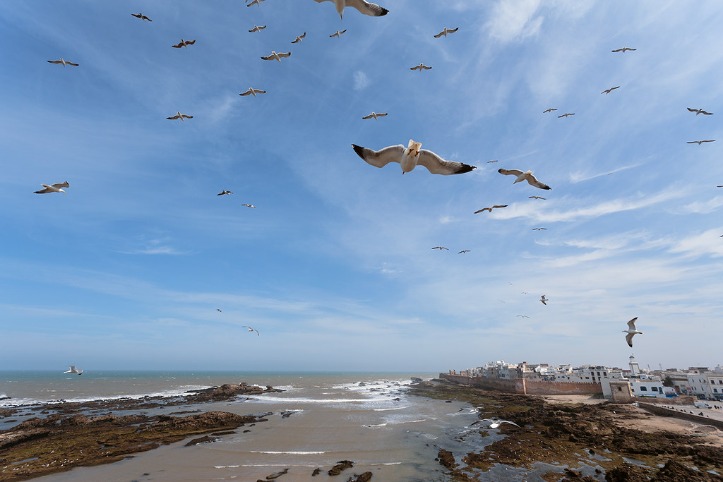
Skala de la Ville is one of the most iconic tourist attractions in Essaouira, Morocco. Perched along the ancient city walls, this historic fortification offers visitors stunning panoramic views of the Atlantic Ocean and the bustling medina below. Originally built in the 18th century, the ramparts served as a defensive structure and now stand as a symbol of Essaouira’s rich maritime heritage. Visitors can walk along the fortified walls, explore cannons from bygone eras, and enjoy the refreshing sea breeze while soaking in the scenic beauty of the coastal town. The site also provides excellent photo opportunities, making it a must-visit spot for travelers seeking to experience Essaouira’s unique blend of history and seaside charm.
Gnaoua World Music Festival
Essaouira, a charming coastal city in Morocco, is renowned for its vibrant culture and historical significance. One of the most notable events hosted here is the Gnaoua World Music Festival, which attracts music lovers from around the globe. This festival celebrates the rich musical heritage of the Gnaoua people, featuring performances by local and international artists that blend traditional Gnaoua rhythms with modern genres.
Visitors to Essaouira during this festival can enjoy a dynamic mix of live music, dance, and cultural activities set against the backdrop of the city’s beautiful medina and Atlantic coastline. The event provides a unique opportunity to experience Moroccan culture firsthand while immersing in the captivating sounds of Gnaoua music. The festival also promotes cultural exchange and highlights Essaouira as a key destination for music and arts enthusiasts.
Economy and Local Industries
Essaouira, a vibrant coastal city in Morocco, boasts a diverse economy deeply rooted in its rich history and cultural heritage. Local industries such as fishing, agriculture, and handicrafts play a vital role in sustaining the community and attracting visitors. The city’s strategic location and artisanal traditions contribute to its economic vitality, making Essaouira a prominent hub for both local livelihood and tourism development.
Fishing Industry
Essaouira, a coastal city in Morocco, boasts a thriving fishing industry that forms the backbone of its local economy. The city’s strategic location along the Atlantic Ocean provides abundant marine resources, supporting a vibrant fishing community. This industry not only sustains local livelihoods but also contributes significantly to the region’s economic development through fish exports and related activities.
- Fresh seafood markets where local fishermen sell their catch directly to consumers and vendors.
- Export of various fish and seafood products to international markets, boosting the city’s economic profile.
- Development of related industries such as seafood processing, preservation, and shipping.
- Employment opportunities for the local population, including fishermen, traders, and workers in processing plants.
- Promotion of sustainable fishing practices to protect marine biodiversity and ensure long-term industry viability.
In addition to fishing, Essaouira’s economy benefits from tourism and artisanal crafts, but the fishing industry remains a vital element that sustains the city’s cultural heritage and economic resilience.
Arts and Handicrafts
Essaouira, a coastal city in Morocco, boasts a diverse economy driven by local industries, arts, and handicrafts. The city’s economy benefits significantly from its vibrant fishing industry, which provides fresh seafood to both local markets and international buyers. Additionally, tourism plays a vital role, attracting visitors to its historic medina, beaches, and cultural festivals, thereby supporting various small businesses and hospitality services.
The arts and handicrafts scene in Essaouira is renowned for its rich tradition and craftsmanship. Skilled artisans produce a wide array of products, including colorful textiles, cedarwood carvings, jewelry, and ceramics, reflecting the city’s artistic heritage. The city is also famous for its music scene, especially the Gnaoua music festivals that celebrate Moroccan and African musical traditions, drawing artists and audiences from around the world.
Overall, Essaouira’s economy is deeply intertwined with its cultural heritage, with local industries and arts serving as vital pillars that sustain its community and attract global interest, ensuring the city’s continued growth and cultural preservation.
Tourism Impact
Essaouira, a vibrant coastal city in Morocco, has an economy heavily influenced by local industries such as fishing, agriculture, and artisanal crafts. Its rich port facilitates the fishing industry, which provides both employment and local sustenance. Additionally, the city is renowned for its production of argan oil, a valued product in international markets, supporting local farmers and cooperatives. The thriving arts and crafts scene, including woodwork, silver jewelry, and textiles, further bolster the economy.
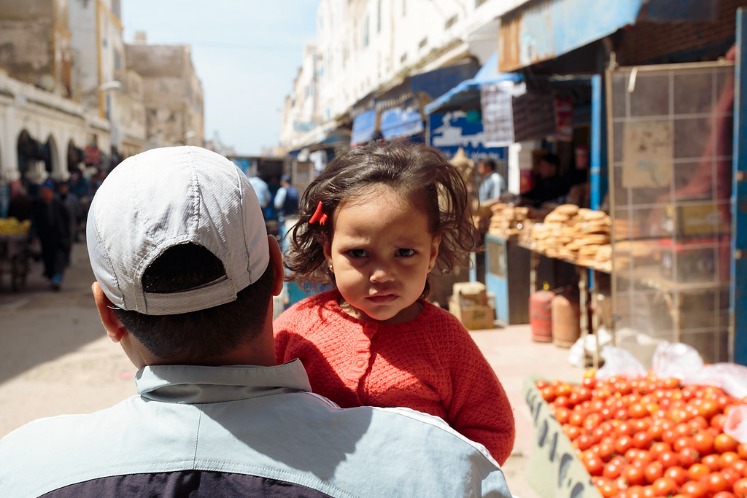
Tourism plays a significant role in Essaouira’s economic development, attracting visitors with its blend of historical charm, unique architecture, and scenic beaches. The city’s well-preserved medina, fortified walls, and lively markets draw tourists seeking cultural experiences and leisure activities. Events like the annual Gnaoua World Music Festival also boost tourism, bringing international audiences and promoting local culture. This influx supports hospitality, dining, and retail sectors, creating jobs and fostering economic growth while encouraging the preservation of cultural heritage.
Living Culture and Daily Life
Essaouira, a vibrant coastal city in Morocco, offers a rich tapestry of living culture and daily life that reflects its unique history and traditions. From bustling markets and colorful souks to lively music and local customs, residents and visitors alike experience a blend of past and present. The city’s laid-back atmosphere and warm hospitality create an inviting environment where everyday activities are infused with cultural significance and communal spirit.
Community and Social Life
Essaouira, a vibrant coastal city in Morocco, boasts a rich living culture deeply rooted in history, tradition, and community life. The city is renowned for its blend of Arab, Berber, and European influences, which are reflected in daily routines, social interactions, and cultural practices.
- The residents of Essaouira cherish their communal ties, often gathering in local markets, cafes, and during communal events. Social life revolves around shared festivals, music, and artistic expressions that foster a strong sense of belonging.
- Daily life is characterized by a relaxed rhythm, with fishermen returning at dawn, artisans working on traditional crafts, and families enjoying meals together. The bustling medina is a hub of activity where local commerce and social exchanges flourish.
- Music and art play a central role in Essaouira’s living culture, with Gnawa music and street performances enriching everyday experiences. These cultural elements not only preserve heritage but also attract tourists, creating a lively and dynamic atmosphere.
- Community gatherings are often centered around religious and cultural celebrations, such as Mawazine or local harvest festivals, which reinforce social bonds and cultural identity among residents.
- In essence, daily life in Essaouira exemplifies a harmonious blend of tradition and modernity, where community interaction and cultural practices remain integral to the city’s unique identity.
Traditional Markets and Commerce
Essaouira, a historic port city in Morocco, boasts a vibrant living culture that reflects a harmonious blend of Arab, Berber, and European influences. Daily life in Essaouira revolves around a close-knit community where traditions are preserved through music, art, and social customs that have been passed down through generations. The bustling streets are filled with the sounds of local traders and craftspeople showcasing their handiworks, creating a lively atmosphere that embodies the city’s rich cultural heritage.
Traditional markets, or souks, form the heart of Essaouira’s commerce, offering a diverse array of goods such as fresh seafood, spices, textiles, and handcrafted souvenirs. These markets are not only centers for trade but also social spaces where locals and visitors mingle, exchanging stories and engaging in bargaining. The commerce in Essaouira remains rooted in tradition, with shopkeepers maintaining time-honored practices that emphasize personal relationships and community bonds, making the marketplace an integral part of everyday life.
Local Festivals and Events
Essaouira, a vibrant coastal city in Morocco, offers a rich blend of living culture and daily life that reflects its historical significance and diverse influences. The city’s winding streets, traditional markets, and bustling ports reveal a community deeply rooted in artisanal crafts, fishing, and music. Locals often gather in cafes and communal squares, engaging in lively conversations and sharing traditional foods that showcase the region’s flavors. Daily life here is characterized by a sense of rhythm that balances work and social interaction, maintaining age-old customs alongside modern influences.
Among the most celebrated aspects of Essaouira are its vibrant festivals and events. The city hosts the annual Gnaoua World Music Festival, attracting musicians and visitors from around the globe who come to experience the powerful rhythms and spiritual melodies of Gnaoua music. This event transforms the city into a lively hub of cultural exchange, with performances held in historic venues and open-air spaces, creating an electrifying atmosphere. Throughout the year, local festivals such as the almond blossom celebrations and traditional souk markets further showcase the city’s cultural heritage, inviting both residents and visitors to partake in its lively, colorful festivities and deepen their understanding of Essaouira’s unique cultural identity.

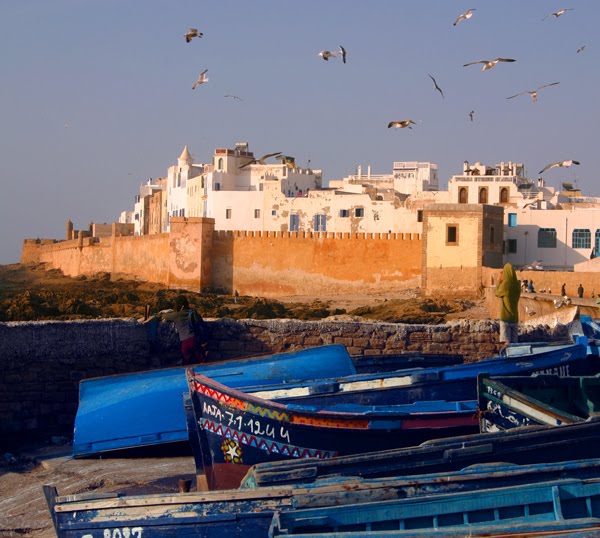
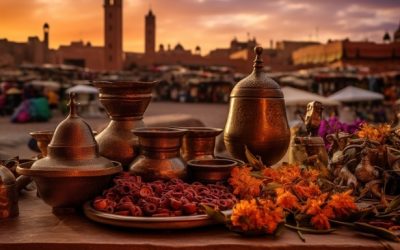
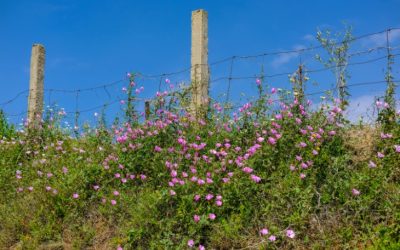
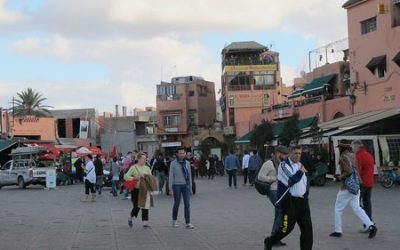
0 Comments